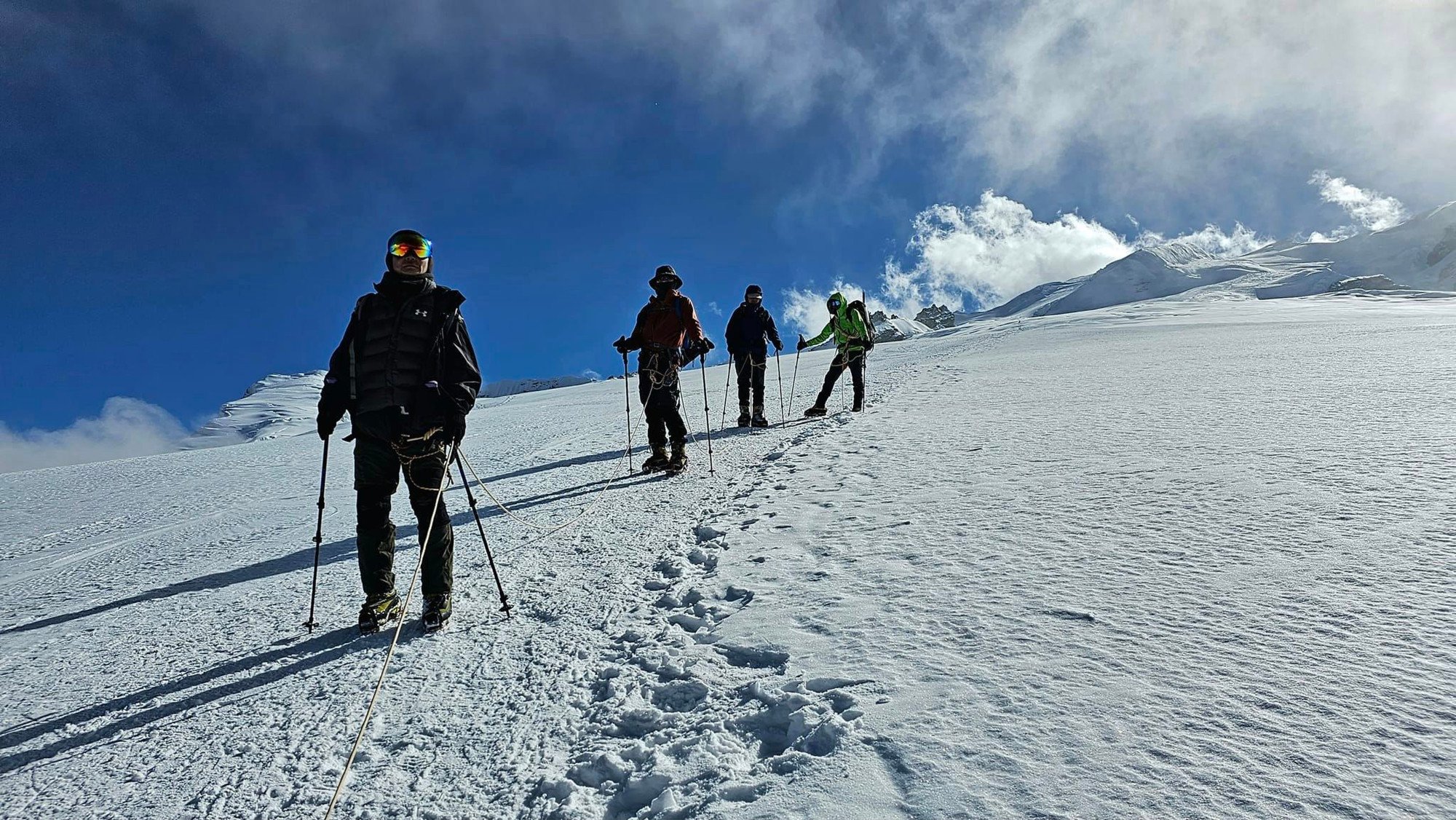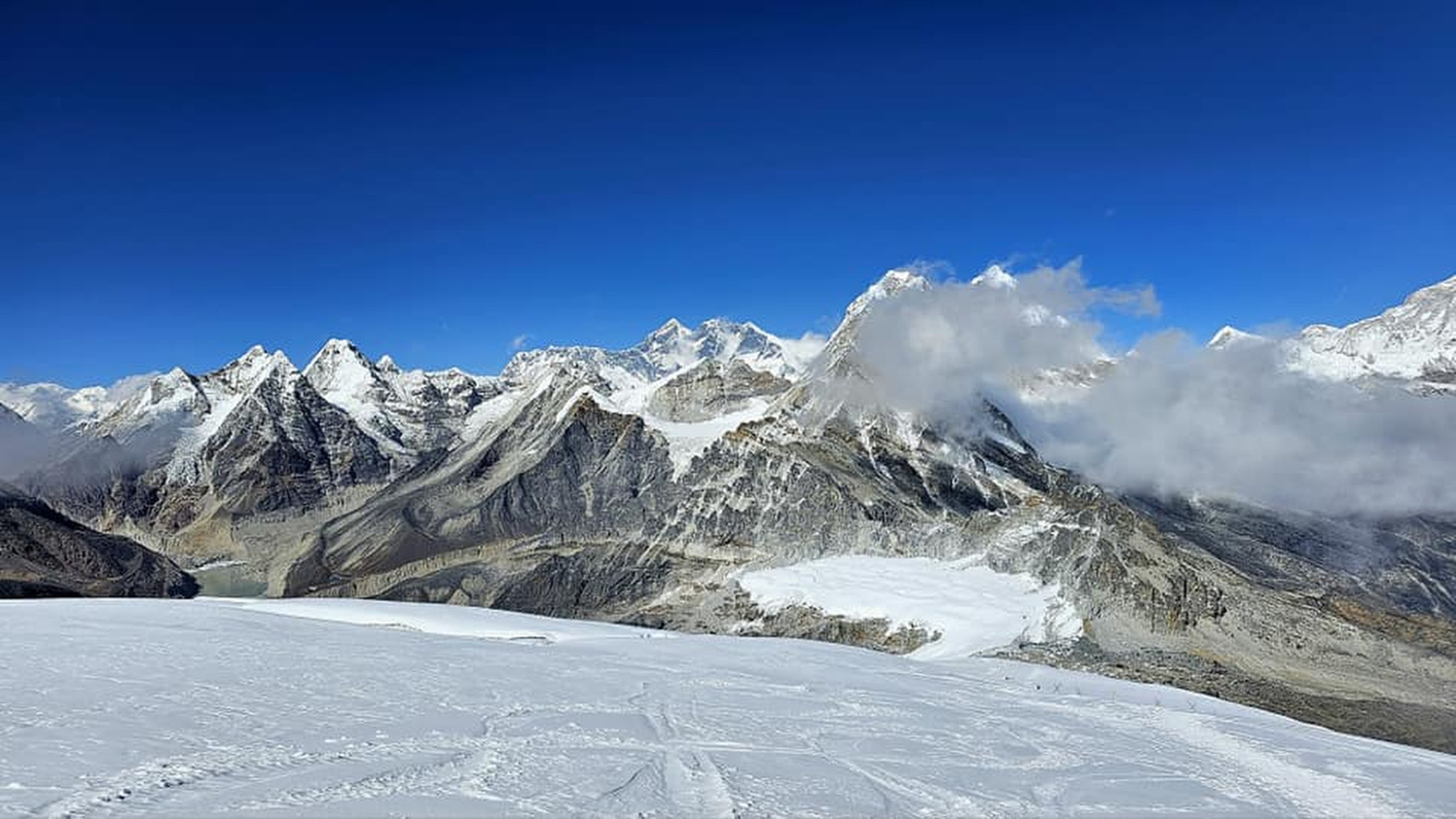Malaysian mountaineer undeterred after near-death experience in high Himalayas: ‘I’ll try harder next round’
Their adventure started when they left Malaysia on October 13, with all four making it home safely on October 28. However, only one among their number – 5-year-old Eric Pok – made it to the peak.
Philip Yong, 64, and Vincent Chong, 52, pressed on until acute mountain sickness (AMS) – a medical condition that affects almost anyone who quickly ascends above 3,400 metres without acclimatising first – got the better of them at 6,000 metres and they turned back.
Malaysian climber slammed for not thanking Sherpa who rescued him from Everest
Malaysian climber slammed for not thanking Sherpa who rescued him from Everest
Mohamed Sadik, 51, at the upper camp at 5,800 metres, already knew his AMS symptoms were too severe for him to carry on.
On the hike to the lower base camp, at around 4,000 metres, his first warning was an annoying headache. “I took paracetamol for it,” he said.
On the march to the upper camp, he recalled hallucinating – suddenly perceiving that he was in a desert, feeling intolerably hot despite being in sub-zero temperatures, and believing that the ice and snow were sand.
He laboriously sucked in air, but it felt like there was not enough oxygen in the thin atmosphere. By the time he had reached the upper camp, his vision was blurred, he was becoming incoherent and he had to be helped into a tent.

If left unchecked, a person with AMS can deteriorate to the point of developing fluids in the lungs and swelling in the brain, both of which are lethal.
Beyond 2,500 metres above sea level, experts advise ascending at a rate of no more than 300 metres to 500 metres a day and resting for a full day before continuing.
Above 4,000 metres, the official advice is to limit any further ascent to just 300 metres per day and resting for two days before soldiering on.
In Malaysia, only Mount Kinabalu – at 4,095 metres high – might cause AMS. Other peaks in Malaysia are only slightly above 2,000 metres at most.
I thought maybe with one more night’s rest, I could attempt the peak, but our Sherpa advised against it. They have seen people die there, so I chose to listen to them
Lying in his tent, Mohamed Sadik recalled how images of his family members kept appearing before him.
“It’s true. When you are at risk of death, you see all your loved ones,” said the climber, who lives in Kuala Lumpur.
He had fuzzy memories of being fed a weak soup and some spaghetti, and he recalled being terrified of falling asleep for fear that he would never wake up.
But sleep did come, and he was told later that he had bad sleep apnoea; his friends could hear him struggling for breath even while asleep, and they kept a constant vigil over him.

It turned out that a little food and some sleep went a long way because, on the next dawn, Mohamed Sadik began feeling better. When Eric returned after conquering the peak that day, the joy was electric.
“In the end, the race is only with yourself. We all shared Eric’s joy,” Mohamed Sadik said.
“I thought maybe with one more night’s rest, I could attempt the peak, but our Sherpa advised against it. They have seen people die there, so I chose to listen to them.”
His quest is not over. Mohamed Sadik, who has loved going on all sorts of adventures since he was a child, has resolved to tackle Mera Peak again, maybe even next year.
‘Horrible, stressful, dangerous’: what it was like in Everest’s traffic jam
‘Horrible, stressful, dangerous’: what it was like in Everest’s traffic jam
“I run my own construction firm, so I am a little busy and perhaps did not spend enough time training. I’ll try harder next round and climb again,” he said.
He believes that people should challenge themselves and chase their dreams, yet always be ready to sound a retreat and try again later.
Mohamed Sadik’s close call came amid a month of tragedies for Malaysian mountaineers in the Himalayas.
Seasoned mountaineer Hazlami Ahmad Nizam, 33, a Kedahan living in Kuantan, died on October 5 while on the way to Mera Peak. Then on October 30, Parthiban Kandasamy, a 38-year-old Malaysian foreign diplomat, died while trekking to Everest Base Camp in Nepal.

